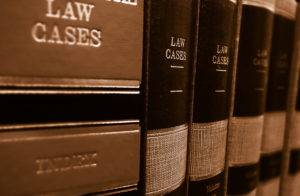Florida’s Wrongful Death Act allows victims of a person killed in a wrongful death matter to recover compensation for their losses.
Although surviving family members are entitled to compensation in a wrongful death case, they cannot file a lawsuit. Florida law requires the victim’s personal representative to file on their behalf. Wrongful death is a category of personal injury law. A lawsuit can be filed when situations like negligence, violence or breach of warranty cause a person’s death.
What Is Wrongful Death in Florida?
To understand what wrongful death is, it’s helpful to understand the law surrounding it. This requires an explanation of the Florida Wrongful Death Act.
The Florida Wrongful Death Act
According to Florida Statute 768.19, the Wrongful Death Act allows the family of a person killed through negligence, a wrongful act, breach of contract or warrant or default to recover damages. A wrongful death lawsuit can be filed if the victim would have had legitimate cause to file a personal injury claim if they’d lived.
Need free legal help in Florida?
We specialize in personal injury claims.

Who Can File a Wrongful Death Claim in Florida
Certain people can file a wrongful death claim in Florida. Different groups can recover damages in this type of case. This includes eligible survivors and those with a specific relationship to the deceased.
According to Florida Statute 768.20, a wrongful death claim can only be filed by the personal representative of the decedent’s estate. This is done on behalf of the surviving family members entitled to compensation for their losses.
Eligible Survivors
According to Florida Statute 768.18, a victim’s eligible survivors can recover compensation in a wrongful death situation. This includes those financially dependent on the decedent who relied on their services.
Relationship to the Deceased
Those with a specific relationship to the deceased can recover damages in wrongful death actions. This includes the victim’s spouse, children and/or parents. If the victim was unmarried and had no children, other blood relatives may recover compensation.
Recoverable Damages Under the Act in Florida
Certain damages are recoverable under the Act in Florida. They are loss of support and services, mental pain and suffering, funeral and burial expenses, economic and non-economic damages and other damages.
Loss of Support and Services
If the victim provided financial support and performed regular services in the household, it could leave their family at a financial loss and in other ways. The survivors may be unable to perform the same services for various reasons.
Mental Pain and Suffering
Losing a loved one to wrongful death often causes survivors mental pain and suffering. These damages are available to the victim’s spouse and children under 25.
Funeral and Burial Expenses
Funeral and burial expenses are among the most common damages available in wrongful death claims. This frees the surviving family from paying out-of-pocket for their loved one’s final arrangements.
Economic vs. Non-Economic Damages
Wrongful death claims allow survivors to recover economic and non-economic damages. Economic damages are those with clear costs such as medical expenses. Non-economic damages carry no set monetary value and include things like mental pain and suffering.
Other Damages
Other damages are available in wrongful death cases. They include lost wages and loss of earning capacity, loss of companionship and loss of consortium, protection, support and services.
Time Limits for Filing a Claim in Florida
Florida institutes time limits for filing a wrongful death claim. To ensure staying within that time frame, you must know about the general statutes of limitation, medical malpractice claims, claims against government entities and exceptions to the statute of limitations.
General Statutes of Limitation in Florida
According to Florida Statute 95.11, legal claims based on negligence have a two-year statute of limitations. This includes wrongful death cases where negligence caused a person’s death.
Medical Malpractice Claims
Some wrongful death cases are based on medical malpractice. If a person dies because of negligence by a doctor or other medical professional, it warrants legal action.
Claims Against Government Entities
According to Florida Statute 768.28, a government entity may be liable for wrongful death. There are special procedures for these cases. For example, notification must be given to the entity about the claim.
Exceptions to the Statute of Limitations
There are exceptions to the statute of limitations in wrongful death claims. If a person is killed by homicide, the case might not be heard while the defendant faces a criminal trial. In that situation, the two-year statute of limitations doesn’t apply.
Need free legal help in Florida?
We specialize in personal injury claims.

Wrongful Death Claims vs. Survival Actions in Florida
Wrongful death claims differ from survival actions. It helps to understand survival actions and differences in pursuing claims.
Understanding Survival Actions
Survival actions allow a deceased victim’s personal representative to file a lawsuit on behalf of heirs. A claim can be filed if the person would have lived to file a personal injury lawsuit.
Differences in Pursuing Claims
Wrongful death claims and survival actions have differences in Florida. In the former, the victim’s surviving family recovers compensation. In survival actions, heirs to the victim’s estate are awarded damages.
The Role of Punitive Damages
Some wrongful death cases involve punitive damages, which carry the role of punishing the defendant for their conduct. It’s crucial to know when they apply and how they’re calculated.
When Punitive Damages Apply
Punitive damages apply when a defendant acts with deliberate misconduct or gross negligence. For example, a person is killed in a car accident because a driver was drag racing.
Calculating Punitive Damages
It’s important to understand how punitive damages are calculated. They are capped at three times the compensatory damages or $500,000, whichever is higher.
Importance of Legal Representation
Wrongful death cases are often complex. This stresses the importance of having legal representation as an attorney knows all aspects of the law and can protect your rights.
Frequently Asked Questions
What Is Considered a Wrongful Death in Florida?
A person’s death caused by negligence or violence is considered wrongful death.
Who Are the Beneficiaries of Wrongful Death in Florida?
Florida allows the victim’s spouse, children and parents to be beneficiaries of wrongful death.
Who Can Recover Under Florida Wrongful Death Statute?
The surviving spouse and children can recover damages under Florida’s wrongful death statute. If the victim is unmarried, their parents can recover.
How Much Is a Wrongful Death Lawsuit Worth in Florida?
A wrongful death lawsuit in Florida may average $500,000 to $1 million.
What Is the Difference Between Wrongful Death and Negligence?
Wrongful death occurs when a person dies due to someone else’s gross negligence, recklessness or violent actions. Negligence is when someone fails to use reasonable care, resulting in harm to another person.
Are Wrongful Death Settlements Taxable in Florida?
Florida wrongful death settlements are non-taxable.
Can a Fiance Sue for Wrongful Death in Florida?
A fiance cannot sue for wrongful death in Florida.
How to Divide a Wrongful Death Settlement in Florida
Wrongful death settlements are divided equitably based on damage type to each survivor.
What Is Wrongful Death Medical Malpractice in Florida?
Wrongful death medical malpractice occurs when a doctor or other medical professional acts with gross negligence and causes a patient’s death.
Can You Sue a Dead Person in Florida?
You cannot sue a dead person. However, a lawsuit can be initiated against the individual’s estate.
Can a Sibling Sue for Wrongful Death in Florida?
A sibling can sue for wrongful death in Florida if they were dependent on the victim.
What Happens to a Lawsuit in Florida When the Plaintiff Dies?
If a plaintiff dies during a lawsuit, their personal representative takes over to recover damages for the estate.
Need free legal help in Florida?
We specialize in personal injury claims.






